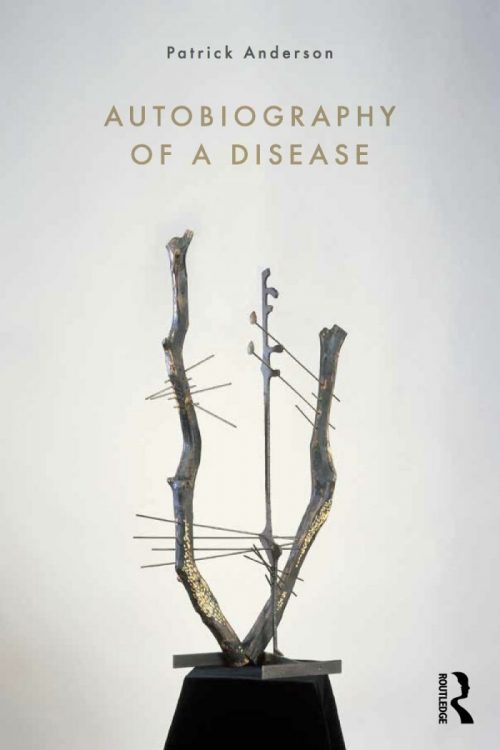Associate Professor and Director of Graduate Studies, Dr. Patrick Anderson, has won the 2018 Qualitative Book Award from the International Congress for Qualitative Inquiry (ICQI) for his latest book, Autobiography of a Disease (Routledge, 2017). ICQI’s mission is to facilitate the development of qualitative research methods across a wide variety of academic disciplines. In addition, it provides leadership to demonstrate the promise of qualitative inquiry as a form of democratic practice, to show how qualitative inquiry can be used to directly engage pressing social issues at the level of local, state, national and global communities.
Congratulations Patrick!
From the publisher:
Autobiography of a Disease documents, in experimental form, the experience of extended life-threatening illness in contemporary US hospitals and clinics. The narrative is based primarily on the author’s sudden and catastrophic collapse into a coma and long hospitalization thirteen years ago; but it has also been crafted from twelve years of research on the history of microbiology, literary representations of illness and medical treatment, cultural analysis of MRSA in the popular press, and extended autoethnographic work on medicalization.
An experiment in form, the book blends the genres of storytelling, historiography, ethnography, and memoir. Unlike most medical memoirs, told from the perspective of the human patient, Autobiography of a Disease is told from the perspective of a bacterial cluster. This orientation is intended to represent the distribution of perspectives on illness, disability, and pain across subjective centers—from patient to monitoring machine, from body to cell, from caregiver to cared-for—and thus makes sense of illness only in a social context.
Reviews:
Patrick Anderson’s Autobiography of a Disease offers a poetic and indispensible contribution to the growing body of literature that traces illness from an autethnographic perspective. It will reward a broad spectrum of lay, academic, and medical professional readers with its detailed account of the broad web of relationships impacted by one person’s illness. Anderson depicts each of these relationships with exemplary ethical care—including his relationship with the virus itself, personified in a captivating and moving way that reveals the flaws in our health care system and the dedicated people who struggle within and against that system as they fight for their lives and the lives of others.
Craig Gingrich-Philbrook, Professor of Communication Studies, Southern Illinois University
I’ve been waiting for this book for a long time, anticipating Patrick Anderson’s always acute, insightful, nuanced, approach to understanding the performances and representations of our lives. Autobiography of a Disease exceeds all my expectations, as it experiments with form, multiplies narrative voices, and undoes the primacy of disciplinary approaches to knowledge and experience. Anderson deploys any and all strategies to evoke the uncanny journey to the precipice of mortality and back to another kind of life. A moving, stunning, necessary book.
Jill Dolan, Dean of the College, Annan Professor of English, Professor of Theatre, Princeton University
This is a captivating intervention into medical and illness narratives. It realizes the power of disease and care with equal parts precision and pleasure. A must-read for anyone interested in how we live in, with, and by our bodies.
Della Pollock, Professor of Communication Studies, The University of North Carolina at Chapel Hill
Patrick Anderson’s Autobiography of a Disease offers a rare and much-needed view of illness that binds the political economy of American medicine to the personal and interpersonal work of healing. With precision and poignancy Anderson offers a harrowing narrative of disease as a communal event linking human and nonhuman agents, moments of peril, and moments of grace. It is an unflinching, creative, and utterly compelling account. Everyone who has been — or will be — a patient or a caregiver should read this book.
Judith Hamera, Professor, Program in Dance, Princeton University


